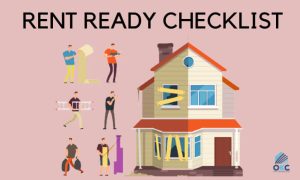I don’t think anyone can deny that it’s a great feeling when you see rent payments flowing into your bank account. On the other hand, it’s never any fun having to deal with the boring processes like filing your taxes.
Many property owners dread tax season because you have to pull out your receipts, statements, and invoices in preparation for tax filing. Let’s face it, filing your taxes isn’t a glamorous process and for some it can even be extremely stressful.
As an investor, filing your taxes can be a bit more complicated than other people who file a standard return. It often means working through some tricky situations, including knowing what deductions you can and cannot take or even how to treat certain tax triggering events.
Nevertheless, owning rental properties allows you access to certain write-offs that other filers may not be privy to. While there are a lot of factors to consider, let’s look at a few key items you should be particularly on top-off before you file.
Rents: Property Income vs. Business Income
There are a variety of ways to structure your rental business. When it comes to filing your taxes, it’s important to identify whether your rental income will be treated as income from real estate or as self-employed income. Each situation carries with it different tax implications.
For example, if the rental property you own is titled under a corporation, it could be considered business income if the corporate entity has more than five full-time employees.1
According to a 2020 survey conducted by the Canadian Imperial Bank of Commerce (CIBC), only 4% of landlords owned rental property through a corporation.1 Nevertheless, it is an important distinction because the corporate tax rate is lower than income from general property income.
The tax code distinguishes rent as property income so long as you only provide basic services to tenants.1 This would include items like utilities, parking, or laundry facilities. Additional services such as housekeeping, or security may change the income designation.
Mixed-use properties can muddy the waters even further, especially when considering key expenses to deduct on your taxes, thereby lowering your taxable property income.
If you live in a property that is also partially rented out, only a portion of the expenses pertaining specifically to the rental area can be deductible.1 You will have to prorate those expenses used for personal use based on reasonable criteria such as the areas square footage that you occupy.
Allowable Rental Property Expense Deductions
One benefit of owning rental real estate is that many of the expenses incurred to manage your property can be written off as a tax deduction. Most expenses fall into two basic categories: current expenses and capital expenses.
A current expense is a cost that recurs often, over short periods of time.2 In some ways you can consider current expenses related to maintaining your property.
One example the Canadian Revenue Agency (CRA) provides is exterior painting. Paint is a current expense because over a relatively short amount of time you will need to repaint to maintain the properties integrity and aesthetic.
Conversely, capital expense is one that provides a long-term benefit or payoff for the property.2 Generally, these items help improve the property beyond its original condition, although there are some special situations that can also be considered.
The Canadian Revenue Agency (CRA) has an extensive list of expenses that can be deductible when it’s time to file your taxes. Deductible items include:2
- Advertising
- Insurance
- Utilities
- Mortgage Interest
- Banking Fees and Charges
- Office Expenses
- Legal and Accounting Fees
- Repairs and Maintenance
- Management and Admin Fees
- Wages and Benefits
- Property Taxes
- Travel Costs
- Motor Vehicle Expenses
- Prepaid Expenses
- Other Rental Expenses
Unique Tax Deductions You May Not Have Known
The Canadian government permits the deduction of specific expenses that are unique to certain rental property scenarios. While not as common, considering these expenses will help ensure you are paying the lowest tax liability possible.
For starters, many property owners aren’t aware that eligible improvements or modifications made as accommodations for tenants with disabilities can be deducted in the year you paid them.2
Eligible modifications include those for wheelchair access, such as hand-activated power doors, exterior ramps, or bathroom accommodations.2 They also include expenses paid for the installation of disability-related devices for such things as fire safety, including telephonic devices and braille paneling.2
Other situations involving older buildings may also carry tax favorable deductions. If, for example, you improve or repair older housing for the purposes of making it suitable housing to rent, the cost of the work can be considered a capital expense as opposed to a current expense.2
Similarly, certain related costs with constructing, rehabbing, or extensively renovating a rental building often involves various soft costs (i.e., interest, legal fees, prepaid taxes, etc.).2 Depending on your situation, some of these expenses can be deductible as a capital cost of the building (not the land).2
Sources
1 Golombek, J., & Pearl-Weinberg, D. (2020, November). So. . .you wanna be a landlord? Income tax considerations for rental properties. CIBC. https://www.cibc.com/content/dam/personal_banking/advice_centre/tax-savings/landlords-en.pdf
2 Canada Revenue Agency. (2022, April 25). Rental expenses you can deduct – Canada.ca. Retrieved May 2, 2022, from https://www.canada.ca/en/revenue-agency/services/tax/businesses/topics/rental-income/completing-form-t776-statement-real-estate-rentals/rental-expenses-you-deduct.html






